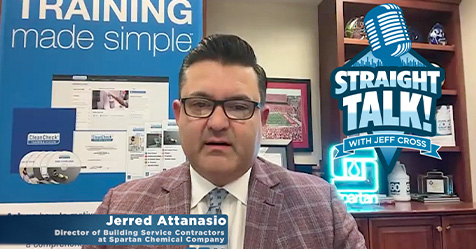Facility Managers Create a Safe Work Atmosphere for Employees
Checklist for creating a comfortable and efficient workspace for less workers in large facilities
June 3, 2020
Although office buildings are reopening, many employees are continuing to work remotely to meet continued social distancing requirements. Facility managers accustomed to managing large facilities filled with workers need to rethink their processes to keep smaller numbers of onsite employees safe while saving energy costs. Facilities Net offers the following recommendations to achieve both of these goals.
- Close and vacate unoccupied floors to not only to conserve resources but also to isolate workspaces from the potential spread of coronavirus and contamination. Survey each tenant group to determine which groups can effectively work remotely and which need access to their workspaces to effectively accomplish tasks. Once you make this determination, adjust housekeeping services so high-touch surfaces in occupied areas receive frequently cleanings.
- Reduce tenant services such as vending and parking. With fewer occupants, managers can consolidate parking into specific areas to make it easier to monitor. They also can adjust vending services to accommodate the smaller staff and direct housekeeping personnel to inspect refrigerators on unoccupied floors to dispose of perishables before they spoil.
- Managers can also take advantage of lower facility occupancy rates to conserve electricity, natural gas, and steam. Maintenance personnel should turn off all unnecessary lights and adhere to temperature setpoints established for optimal energy conservation.
The American Society of Heating, Refrigerating and Air-Conditioning Engineers (ASHRAE) does not recommend that maintenance staff turn off HVAC systems for occupied spaces. Instead, it recommends the following HVAC-related actions:
- Increase outdoor air ventilation but use caution in highly polluted areas. With a lower population in the building, this tactic increases the effective dilution ventilation per person.
- Disable demand-controlled ventilation.
- Open minimum outdoor air dampers further, as high as 100%, eliminating recirculation which can spread germs through the air. During mild weather, this step does not affect thermal comfort or humidity, but it becomes more difficult in extremely hot weather.
- Keep systems running longer hours, if possible 24/7, to enhance the actions above.


